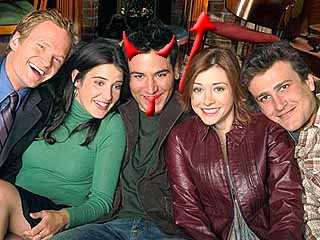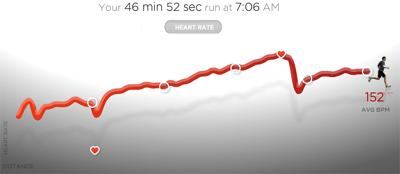Semi-Fiction by Jason Edwards. I’m going to cheat and tell you what this story is about. This is the writer’s process, or at least one of a billion different process. It’s not always the process I follow, but one I sometimes use without really realizing it. Vaguery floats around, looking for an interesting morsel around which to coalesce. It is an unconscious process; even as I wrote this, I didn’t know what I was writing. I just wanted to write something, wanted to try out this little writing program called Dark Room. My apologies if the “ending” is not very satisfactory: since all endings are just beginnings anyway, I figure, why not use a beginning for an ending.
March 14th. Pi day. Isn’t that cute. I’m walking down a street somewhere in New Orleans. This place is supposed to be exciting. It’s not. This place is supposed to be warm, at least. It’s not. Maybe we’re too far past Mardi Gras. Maybe we’re not close enough to summer. Or even spring. Does spring start on the equinox? When’s the damn equinox. I’d rather not be wearing fleece, here in New Orleans.
My third visit. First visit: wife’s pharmacy conference. I came along for the ride, ran in the Mardi Gras half-marathon. That was fun. Bourbon street at nine in the morning is fun. I think we ran past Anne Rice’s house, because at one point there were people dressed like vampires passing out water and Gatorade. Orange Gatorade. Should have been red. But it was just one water stop.
Second visit: wife’s sister’s fiancée’s bachelor party. I was invited probably out of some sense of pity. I didn’t have a bachelor party of my own. Got married when I was 37. When you’re 37, you don’t get to have a bachelor party. If you’re 37, and you’re still doing the sorts of things that guys do at bachelor parties, things that you’ll miss once you’re married, you have no business getting married. But I digress. I was invited. I went. Whiskey and poker and steak dinners and city tours and few strippers. Typical, lots of fun.
Reason for third visit? I’m not sure. This is where the fiction begins. I woke up, and I knew I had a plane ticket. Couldn’t really remember why, but I checked, and my bags were packed. I almost remember that I packed them myself. I must have, because when I left the airport to get a cab, it was cold, and I knew there was a fleece for me inside the suitcase.
And the hotel, for that matter. They were expecting me. Walked right up the desk, told them I had a reservation. McGillan, I said, automatically. I have literally never heard that name before in my life. Of course, they said. We’ll just need a credit card. I pulled one out– it had the name McGillan on it too. I handed it over. Everything went very smoothly.
I also spied a driver’s license in my wallet, when I grabbed the credit card. But I’m afraid to look at it. Go ahead and laugh at me. When I got to the room (large, one king bed) I avoided all mirrors. I don’t want to see that I’m not actually me. Not yet.
And now here I am, walking somewhere in the middle of the place. Have you been to New Orleans? I bet you haven’t. It’s not a very large town. There’s the tourist part, of course, with a small slice for Bourbon street, a small slice for the waterfront. There’s a casino. Some jazz clubs you haven’t heard of, where musicians you haven’t heard of have played. But if you heard the music, you recognize it. “We heard that in third grade, during Black history month.”
That’s New Orleans. And I’m walking down clean sidewalks, not quite an industrial area, not quite residential, on the edge of the convention center district. Restaurants that cater to mid-week visitors looking for an authentic po’boy, jambalaya, or cat fish. I’ve had cat fish. It’s usually mushy.
Up ahead, I spy a sign. The word “spy” rolls around in my mind. Am I a spy? Have I been activated? Was I a sleeper, did I get a call yesterday, a cryptic word, a post-hypnotic suggestion? Am I Jason Bourne? Should I ask a cab driver to take me to the rough part of town, drop me off, walk into a pool hall and stick out like a sore thumb, invite trouble, an assault by three tough-looking youths, and me spinning around doing Jackie Chan moves with the pool cue and surprisingly useful empty bottle of Sazerac?
It could be like the witch trials, back in the day. If I survive, it’s proof I’m a secret agent. If I don’t, it’s proof I’m dead.
The sign hangs on the side of a building walled with corrugated metal sheets. I’m two blocks away now. 10 years ago my Lasik would have been good enough to read it by now. I can still see better than I did before the Lasik, but I can’t quite make it out yet. But there’s something compelling about it, something about its shape. I have no idea why I’m here, so I’m going to sate my curiosity and check it out. What else am I going to do.
First visit, wife’s pharmacy conference. I worked on my laptop, from the hotel room, and when I didn’t have to work, I wandered around a lot. The new waterfront mall. Bourbon street at 2 PM, not quite the night life I’d see during the bachelor party on my subsequent visit, but still some liveliness. I was teetotalling at the time, so I avoided the daiquiris, just got drunk from walking around. Not exactly drunk, of course. That’s artistic license. My point is, that first visit, even with the half-marathon notwithstanding, I spent a lot of time on my feet.
Second visit, brother-in-law-in-law’s bachelor party, there was also a lot of walking. I’m an early riser, so while the guy’s slept it off, I would get up and see the city in the morning. If another of them was awake, we’d eschew the cab and go for a long walk to one eatery or another. One afternoon they guys wanted to visit the World War II museum, and I decided to skip it. I’m not passing judgment, I just can’t stand that kind of thing. Went for a long-ass walk instead.
Is that why I’m here now, on my third visit? Just to walk around all over the place? I read a story once, might have been a book, about this guy who decided to just start walking all over the place, and for some reason people start to join him, and soon there’s a crowd of folks walking across America, and the crowd grows and grows, picking up more people, until the author reveals it’s this thing the Earth is doing to cure itself of the cancer called Humanity.
Did some failsafe trigger inside me? Do I have some sort of cancer of the soul, did I unconsciously book myself a ticket for this place where I had, a few times before, just walked around for no good reason? I’ve been to Las Vegas a few times, walked my legs off there too, so why not Vegas? I’ve pounded the streets of Paris, a fool’s errand, walking around looking for the Bastille, stupidly unaware that it had been torn down at the start of the revolution. So why not Paris. Why not Seattle, San Jose, Washington DC. My feet have seen a lot of pavement.
One block away from the sign now, and I can finally make it out. It’s a gigantic Pi symbol. I remember this place. It’s called Famous Pi, and yes, they make pizza. A feeling of completion comes over me. I wandered by here during the bachelor party, and yes, it was March 14th that time too. Took a picture, sent it to my sister’s wife, who appreciates math jokes. Famous Pi on Pi day. Isn’t that cute.
And now here I am again. I check my pockets– no phone. So I’m not here to take another picture. I check my wallet. No cash– and a placard on the door of the place says they don’t take credit cards. You’d think, whatever complicated machine put me on this path would have known that. So I’m not here to eat.
I check my gut. I’m not even hungry. But I’m apprehensive. Add I don’t even know why. But I don’t hesitate. I walk right in.
The smell of garlic, cheese, bread. I look around– none of this is familiar. I’d only ever taken a picture from the outside, didn’t go in. So this is new. There’s no one here, except a guy behind the counter, who looks at me.
“McGillan.” he says.
And then it washes all away. I’ve been to New Orleans more than twice before. I’ve been here dozens of times. I don’t have a wife– I’ve never been married. I’ve been to a few bachelor parties, but never in this city. Everything I was thinking I was, before, I’m not. I’m someone else entirely.
“Luther.” I say.
“Welcome. We’ve got a story to write. Sit down. Get you something to eat? On the house.”
Like this:
Like Loading...
 have drained feeling, and yeah, I feel it in my head. So my head feels funny when my body is sugar deprived, but I don’t think my body is sugar deprived, but my brain might be.
have drained feeling, and yeah, I feel it in my head. So my head feels funny when my body is sugar deprived, but I don’t think my body is sugar deprived, but my brain might be.





